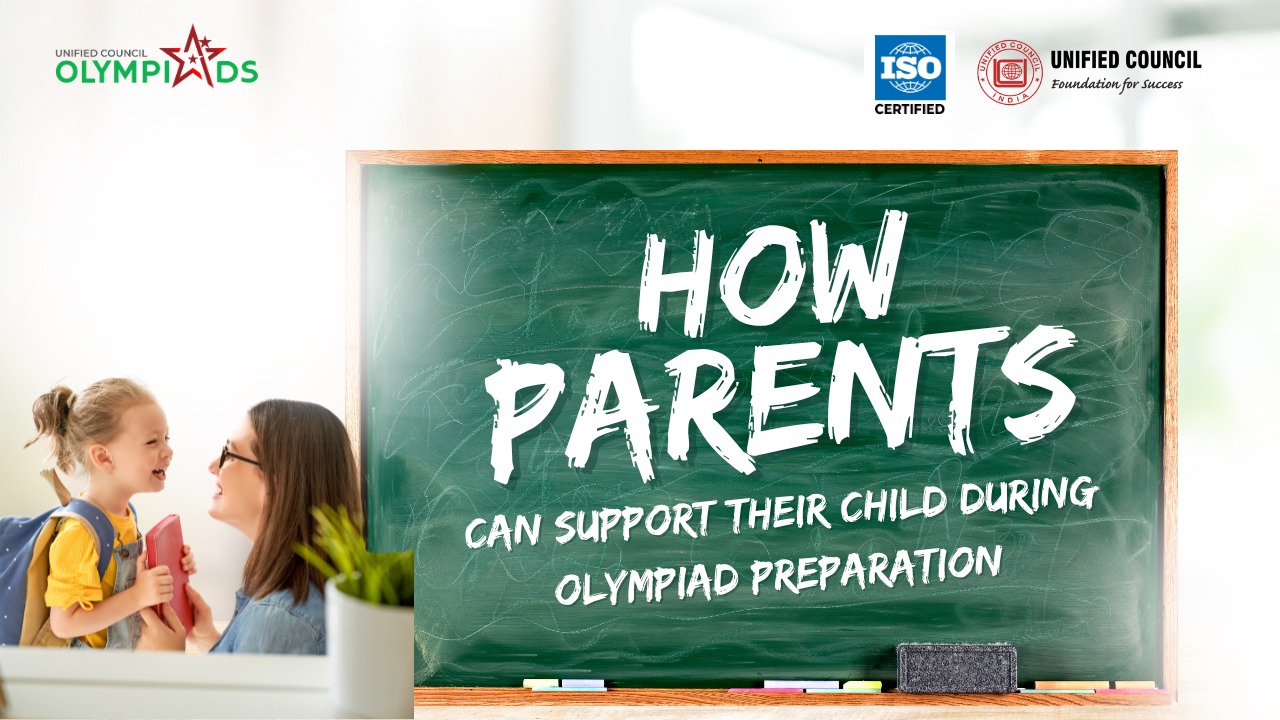
Posted at - 03-Oct-2025
Academic competitions like olympiads have become increasingly popular among students seeking to challenge themselves and showcase their abilities. While these competitions offer excellent opportunities for intellectual growth, the journey of olympiad preparation can be demanding for young learners. Parents play a crucial role in creating an environment that nurtures success while maintaining their child's well-being and motivation throughout this challenging process.
Understanding the unique pressures and requirements of an olympiad examination helps parents provide meaningful support that goes beyond simply encouraging their child to study harder. The key lies in balancing academic support with emotional guidance, creating realistic expectations, and fostering a love for learning that extends well beyond competition results.
Olympiad examinations differ significantly from regular school tests. These competitions feature complex problem-solving challenges that require deep conceptual understanding, creative thinking, and time management skills. Students often encounter problems that have no straightforward solutions, demanding persistence and analytical reasoning.
Parents should recognise that olympiad preparation involves:
Success in Olympiad examinations cannot be measured solely by rankings or medals. Parents who focus exclusively on winning often create unnecessary pressure that can diminish their child's natural curiosity and love for the subject. Instead, celebrating personal improvement, problem-solving breakthroughs, and sustained effort creates a healthier learning environment.
The home environment significantly impacts study effectiveness:
Effective olympiad preparation requires structured time allocation:
Olympiad preparation can create significant stress for young minds. Parents can help by:
Long-term success requires developing inner strength:
Parents can provide valuable academic support while allowing their child to maintain ownership of their learning:
Successful Olympiad preparation requires holistic development:
Quality communication strengthens the parent-child relationship during stressful preparation periods:
Help children understand that olympiad preparation offers benefits beyond competition results:
Maintain open communication with your child's regular teachers to ensure olympiad preparation doesn't negatively impact overall academic performance. Many schools offer additional support for students participating in competitions, and teachers can provide valuable insights about your child's strengths and areas needing improvement.
When selecting additional support:
The journey of Olympiad preparation offers tremendous opportunities for growth, learning, and personal development. Parents who approach this journey with patience, understanding, and strategic support create conditions for their child to thrive both during the preparation period and in future academic endeavours.
Q: How can parents help without interfering with their child's independent learning during Olympiad preparation?
A: Parents can provide structural support like creating study schedules, arranging resources, and maintaining a conducive environment while allowing children to tackle problems independently. Offer encouragement and celebrate efforts rather than jumping in to solve difficulties. When children seek help, guide them toward finding solutions rather than providing direct answers. This approach builds confidence and problem-solving skills essential for olympiad examination success.
Q: What should parents do if their child becomes overwhelmed or loses motivation during Olympiad preparation?
A: Take breaks from intensive preparation and focus on restoring enjoyment in learning. Engage in fun, subject-related activities that rebuild interest without pressure. Talk openly about feelings and reassess goals together. Sometimes reducing preparation intensity or taking a temporary break helps children regain perspective. Remember that mental health and overall well-being are more important than any competition outcome.
Q: How can working parents effectively support their child's olympiad preparation despite time constraints?
A: Focus on quality over quantity in your involvement. Dedicate specific times for checking progress and providing encouragement, such as weekend planning sessions or brief daily check-ins. Utilise technology for communication when physically absent, and consider arranging reliable academic support through tutors or study groups. Most importantly, ensure your child knows they have your support and understanding, even when you cannot be physically present during study sessions.